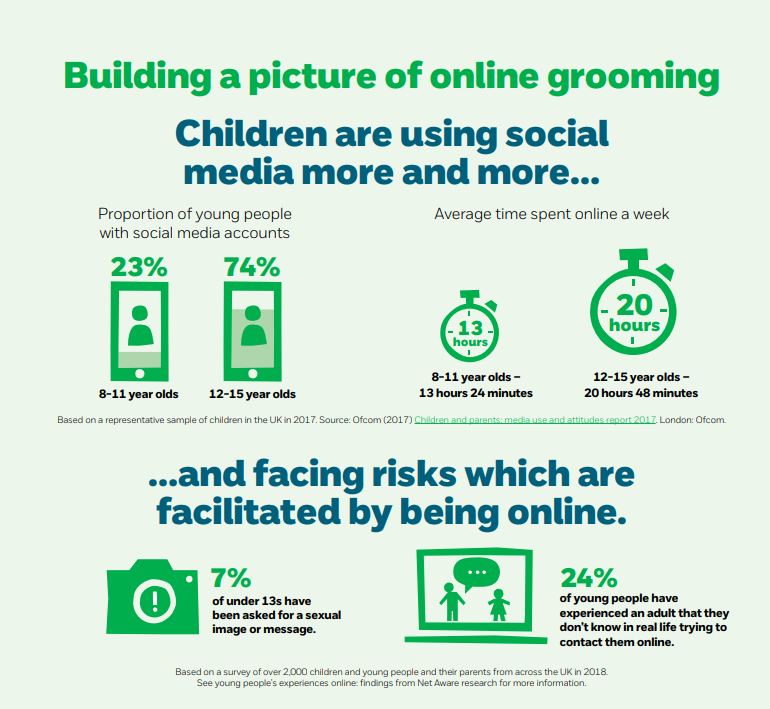Image taken from: Bentley, H. et al (2018) How safe are our children? The most comprehensive overview of child protection in the UK 2018. London: NSPCC.
Most people are aware of the National Society for the Prevention of Cruelty to Children – the NSPCC – which is the largest charity in the UK specialising in child protection. The NSPCC has been campaigning and supporting children since 1985, a considerable length of time. Most people are not aware that interestingly the NSPCC is the only UK children’s charity with statutory powers and that means it can take action to safeguard children at risk of abuse.
On my Safeguarding training I always cite the NSPCC as an organisation that any professional and indeed member of the public can contact to talk through any concerns they have about a child. Many of my participants have told me how helpful the NSPCC have been to them in the past. The NSPCC is often at the forefront of new initiatives in prevention of child abuse. I frequently refer to their work in my newsletters, including their activism on mandatory reporting, their library of Serious Case Reviews, and their helplines (see below).
For the last five years the NSPCC has been compiling and analysing the most robust and up-to-date child protection data that exists across the 4 nations in the UK. The charity has been consistently looking at the same indicators each year, to track changes over time and consolidating this national data into one document. The annual report entitled ‘How safe are our children’.
This year’s report sets out what the available data tells us about the current child protection landscape, and takes a closer look at how safe children are online.
Key points in the NSPCC report:
- There have been increases in police-recorded child sexual offences across the UK and increases in child cruelty and neglect offences in all UK nations except Scotland.
- The last decade has also seen increased numbers of children on child protection plans and registers.
- Almost a quarter of young people were contacted online by an adult they did not know.
- Since the offence of communicating indecently with a child was introduced in England and Wales in April 2017, over 3,000 crimes have been recorded by the police.
- Following the Government’s commitment to bring in laws to protect children online in 2018, the NSPCC is calling for the legislation to:
- commit social media firms to follow a consistent set of minimum safeguarding standards
- make platforms report on how they keep children safe
- carry consequences for platforms that don’t follow safeguarding rules
- make platforms take proactive steps to prevent exposure to illegal content and behaviour
I would really encourage you to read this important report – it is written in an engaging and accessible way.
To contact the NSPCC for practical help or to report abuse:
https://www.nspcc.org.uk/what-you-can-do/report-abuse/
